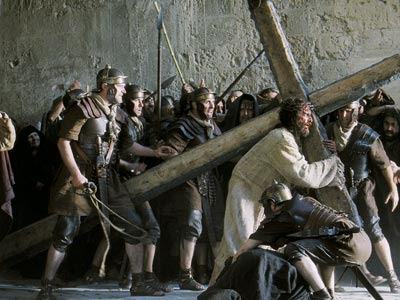
A Song of Two Humans, also known as Sunrise, is a 1927 American silent film directed by German film director F. W. Murnau. The story was adapted by Carl Mayer from the short story "Die Reise nach Tilsit" ("A Trip to Tilsit" by Hermann Sudermann).
Sunrise won an
Academy Award for Unique and Artistic Production at the first ever Academy Awards ceremony in 1929. In 1937, Sunrise's original negative was destroyed in a nitrate fire. A new negative was created from a surviving print. In 1989, this film was deemed "culturally, historically, or aesthetically significant" by the United States Library of Congress and selected for preservation in their National Film Registry. In a 2002 critics' poll for the British Film Institute, Sunrise was named the seventh-best film in the history of motion pictures.
In 2007, the film was chosen #82 on the 10th anniversary update of the American Film Institute's 100 Years... 100 Movies list of great films. Sunrise is one of the first with a soundtrack of music and sound effects recorded in the then-new Fox Movietone sound-on-film system. Much of the exterior shooting was done at Lake Arrowhead, California.
Plot -A Woman From the City (Margaret Livingston) travels to the country on a summertime vacation. She lingers in one particular lakeside town for weeks, having started an affair. One night, she puts on a slinky black dress and wanders through town to a farmhouse where the Man (George O'Brien) and the Wife (Janet Gaynor) live with their infant child. She whistles from outside to the Man. The Man leaves his wife and child for a clandestine tryst. The Wife, well aware (as is everyone else in town) of why her husband has gone, cries on her child's pillow.
The Man and the Woman embrace. The Woman tells the Man that he should sell the farm and go with her to the City. When he asks what to do about his wife, she suggests he drown her and make it look like a boating accident. He objects violently at first, but reluctantly agrees. The Woman gathers bundles of reeds so that, when the boat is overturned, the Man can use them to help stay afloat.
The Wife suspects nothing when her husband suggests going on an outing. The next day, they set off across the lake, but she soon grows suspicious of his strange behavior. The Man stands up menacingly and prepares to throw the Wife overboard, but realizes he cannot do it. He sits back down and begins rowing frantically. When the boat reaches the other shore, the Wife flees and the Man follows, begging her not to be afraid of him.
The Wife boards a trolley to escape, but the Man manages to get on as well. It takes them into the City. Once there, the Wife runs from the Man in a state of fear and confusion into the busy street. The Man catches her and pulls her to safety. Together they wander the City, the Wife still fearful and unsure of the Man's intentions toward her. Slowly, she begins to forgive him. He buys her a bouquet of flowers. Soon after, they go inside a church to watch a wedding. The Man breaks down. After a tearful reconciliation, they wander into the street, oblivious to the busy traffic around them.
They stroll around the City, getting their picture taken by a photographer who mistakes them for newlyweds, and visiting a barber shop, where the Man gets a shave, then has to fend off an admirer of the Wife. They make their way to a bustling amusement park, where they play a Midway game and dance to a country tune. As darkness falls, they board the trolley for home.
Soon they are drifting peacefully back across the lake under the moonlight. A sudden storm causes their boat to begin sinking. The Man remembers the two bundles of reeds he placed in the boat earlier, and ties the bundles around the Wife. Then the boat capsizes. The Man awakes on the rocky shore, but cannot find his wife. He gathers the townspeople to search the lake in boats for the Wife, but all they find is a broken bundle of reeds floating in the water.
The Woman From The City wakes to the frantic mobilization of the townsfolk and watches from the shadows. Convinced the Wife has drowned, the grief-stricken Man stumbles home and sobs uncontrollably on the Wife's empty bed. The Woman goes to his house, assuming their plan has succeeded, but recoils in horror as the Man glares at her in a murderous rage. She flees, but he chases her down, and begins to choke her. Then the Maid calls to him that his wife is alive, and he releases the Woman. The Wife has survived by clinging to one last bundle of reeds, and has been pulled from the lake by an old fisherman who did not give up hope.
The Man kneels by the Wife's bed as she slowly opens her eyes and smiles radiantly at him. As the sun rises over their farmhouse, the Woman From The City leaves town on a cart. The Man and the Wife kiss as the film dissolves to the sunrise.

















